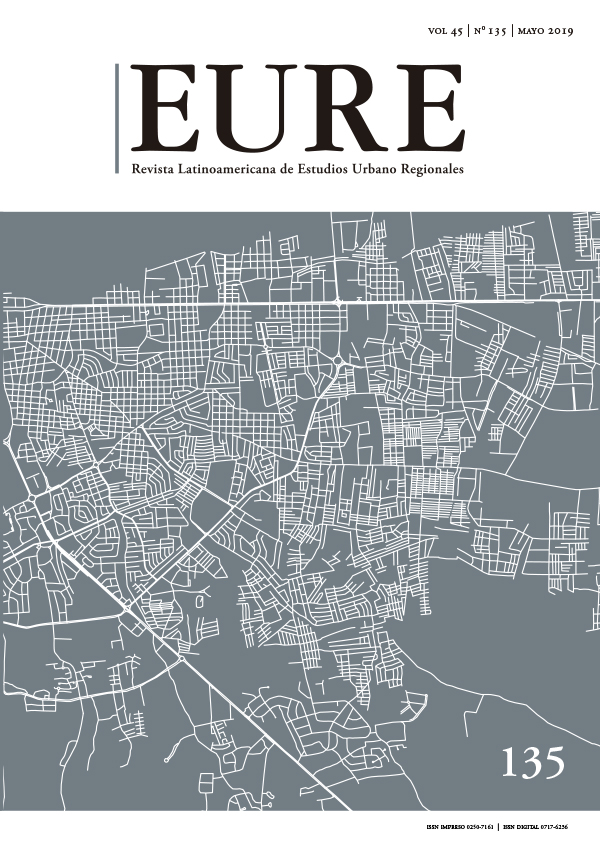Atravessando a cidade. A mobilidade e a experiíªncia subjetiva do espaí§o por trabalhadoras domésticas em Bogotá
DOI:
https://doi.org/10.4067/S0250-71612019000200027Palavras-chave:
desigualdade social, segregaí§í£o, mobilidadeResumo
Com foco nas vidas e experiíªncias de trabalhadores domésticos em Bogotá, Colí´mbia, este artigo examina a interaí§í£o entre o espaí§o e a diferení§a socioeconí´mica no contexto urbano. Mais especificamente, Í€œa produí§í£o do espaí§oÍ€ (Lefebvre, 1991) é explorada pelos empregados domésticos, ou seja, como eles usam, experimentam e intervíªm no espaí§o urbano. Para isso se analisa, através de entrevistas estruturadas e da documentaí§í£o das trajetórias de mobilidade, a forma com a qual essas mulheres usam, experimentam e intervíªm no espaí§o urbano. O artigo se propíµe, em suma, a oferecer elementos para compreender a maneiras em que as lógicas de estratificaí§í£o da cidade marcam a experiíªncia subjetiva das empregas domésticas. Í Nesse sentido, a análise se enfoca nas interaí§íµes das dimensíµes espaciais, sociais e econí´micas, e em como essas definem as vidas e possibilidades de mobilidade das empregadas domésticas na cidade.Downloads
Publicado
Como Citar
Edição
Seção
Licença
Copyright (c) 2019 Revista EURE - Revista de Estudios Urbano Regionales

Este trabalho está licenciado sob uma licença Creative Commons Attribution 4.0 International License.
Al momento de aceptar la publicación de sus artículos, los autores deberán formalizar la cesión de derechos de autor a EURE, según las condiciones establecidas por la Revista.
Ésta establece que el autor autoriza a EURE de manera gratuita, exclusiva e ilimitada a reproducir, editar, publicar, distribuir, publicitar, comercializar y traducir el artículo, a cualquier soporte conocido o por conocer y desarrollar.
Del mismo modo, los autores aseguran que el artículo propuesto es original, no publicado y no propuesto para tal fin a otro medio de difusión.


